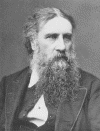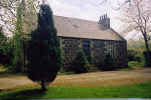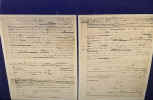|
 Stella & Rose's Books
featured
Stella & Rose's Books
featured
Stella and Rose's, as well as being featured in "The
Independent" weekend magazine "The Information" on July
9th as one of the top 10 antiquarian booksellers of the
UK, selected for their wide choice of titles and
award-winning customer service, Rose's - the Hay-on-Wye
branch of the ibooknet member will feature in an
episode of "Flog it!" later in the year.
"Flog it!" presenter Paul Martin interviewed Maria
Goddard of Rose's as part of a special feature on
Hay-on-Wye. Rose's stocks around 12,000 rare and
out-of-print children's and illustrated books and Paul
Martin was particularly taken with their Ladybird
Books, some of which he remembered from his childhood.
|
|
Not all of us are Rowling!
A recent survey of children's authors shows that one
third of them earn less than the national minimum wage
of £8,800 per annum and that some of them work for as
little as 2p an hour.
The survey was of 117 established author's who replied
to a questionnaire from the Society of Authors. Thirty
one percent of the sample earned over £20,000 per
annum. This is all a long way from the mega earners of
the world of children's book - JK Rowling earned over
£10m last year, Jacqueline Wilson earned £17m, Philip
Pulman £6m, Roald Dahl £19m and Enid Blyton's sales
topped £14m - and these figures are for book sales
alone.
I suppose the fact that JK Rowling was in a worse
situation than many of the surveyed authors - they are
all published and poor, Rowling was UNPUBLISHED and
poor, might give the established poor some hope.
|
|
 George Macdonald by
George Macdonald by
Michael Seton of
Alba Books
The north east of Scotland is a rural landscape with a
scattering of small towns and villages. It was in a
small house in one such small town, Huntly, that George
Macdonald was born in 1824 into a solid middle-class
family. His grandfather was a banker and his father the
nearest thing Huntly had to an industrialist. His
family were deeply religious with a stern Calvinistic
streak and had ambitions for George to take up a career
in the church. Macdonald's early years, though, were
not conventional. He went not to the local parish
school, but to an independent 'adventure' school, where
the discipline could be harsh. With Macdonald suffering
long periods of illness his school attendance was
patchy. It seems he spent much time riding, swimming,
or just day-dreaming. He was, though, academically
bright and at the age of sixteen won a bursary to
King's College, Aberdeen. He was, reportedly, a
'strikingly colourful, if melancholy' student and his
extended university career included a session out
cataloguing a castle library where he read deeply in
romantic literature and poetry.
 On leaving university he still harboured ambitions of
becoming a romantic poet, but as a dutiful son entered
Highbury Theological College in London. He soon found
himself at odds with its Calvinist philosophy and left
without taking his degree. He was 'called' though, to
minister to the congregation of a small church at
Arundel in Sussex. Soon after taking up his post he
married his cousin, Louisa Powell. It wasn't long
before his congregation found Macdonald's beliefs
somewhat at variance to their own. He lasted barely two
years before moving on to Manchester where he founded
his own church and in 1855 he published his major
romantic poem 'Within And Without' whose admirers
included Charles Kingsley and Lady Byron.
On leaving university he still harboured ambitions of
becoming a romantic poet, but as a dutiful son entered
Highbury Theological College in London. He soon found
himself at odds with its Calvinist philosophy and left
without taking his degree. He was 'called' though, to
minister to the congregation of a small church at
Arundel in Sussex. Soon after taking up his post he
married his cousin, Louisa Powell. It wasn't long
before his congregation found Macdonald's beliefs
somewhat at variance to their own. He lasted barely two
years before moving on to Manchester where he founded
his own church and in 1855 he published his major
romantic poem 'Within And Without' whose admirers
included Charles Kingsley and Lady Byron.
1857 found the Macdonald family in Hastings, where he
wrote 'Phantastes'. In 1859 the Macdonalds, now with
six children, moved to London. Macdonald was in great
demand as a preacher and lecturer and he became first
professor of English Literature at Bedford College.
Lewis Carroll became a family friend and tried out
'Alice In Wonderland' on the Macdonald children before
deciding to publish. In 1863 Macdonald’s first novel
'David Elginbrod', set here in the north-east of
Scotland, was published and from then on he produced a
steady stream of novels, fairy tales and sermons.
Between 1867 and 1877 the Macdonalds lived at The
Retreat, Hammersmith, later owned by William Morris. In
that year George’s daughter Mary fell ill and the
family, now numbering eleven children, moved to
Bordighera on the Ligurian coast of Italy, where they
built a large house. Macdonald spent the winters in
Italy writing and the summers lecturing and touring in
Britain. After the publication of 'Lilith' in 1895 his
health began to deteriorate. In 1898 he suffered a
stroke and from then on scarcely spoke a word until his
death in 1905. In this year (2005), the centenary of
his death, many special events have been organized: an
indication of his enduring popularity.
 Macdonald is most popularly known as a children's
writer, the author of books like 'The Princess and the
Goblin', 'The Princess and Curdie' and 'At The Back Of
The North Wind', but his adult fantasy novels
'Phantastes' and 'Lilith' established a new kind of
writing in English. His work influenced writers like
C.S. Lewis, W.H. Auden, G.K. Chesterton and T.S. Eliot.
Macdonald is most popularly known as a children's
writer, the author of books like 'The Princess and the
Goblin', 'The Princess and Curdie' and 'At The Back Of
The North Wind', but his adult fantasy novels
'Phantastes' and 'Lilith' established a new kind of
writing in English. His work influenced writers like
C.S. Lewis, W.H. Auden, G.K. Chesterton and T.S. Eliot.
Here in the north-east of Scotland his enduring
popularity rests on his Scottish novels, all of which
are set locally. 'Alec Forbes of Howglen’ (1865) and
'Robert Falconer' (1868), both draw largely on
Macdonald's own youth, whilst 'Malcolm' (1875) and 'The
Marquis of Lossie' (1877) are set to the north of
Huntly in the fishing town of Cullen. Even his
children's books 'The Princess and the Goblin' and 'The
Princess and Curdie' take place in a realm of bygone
years in a distinctly Scottish landscape.
The local library in Huntly has a collection of his
books and some manuscripts. There is also a flourishing
George Macdonald Society and, in the competition for
tourist numbers, a George Macdonald trail around his
home town. Macdonald’s works are still very collectable
especially the very scarce three-deckers. Judging by
the well-used condition of most of the copies of his
works that I’ve come across he is also still read as
well as being collected.
|
|
Braille library saved
Historic braille books kept by the National Library for
the Blind have been rescued for future generations
following a Heritage Lottery Fund grant of £46,700.
The collection, which is the second largest of its kind
in the world, is housed at the charity's Stockport
headquarters. Some of the books date back to 1836, when
they were slowly typed by hand and include "The Book of
Common Prayer", "Pilgrim's Progress", "The Queen's
Journal: A Life In The Highlands" and poems by Tennyson
and Browning.
The National Library for the Blind provides a free
postal library service to blind and partially-sighted
people worldwide. It houses Europe's largest collection
of tactile books and music and offers a range of
innovative electronic library and information services
via the website at www.nlb-online.org
|
|
W. B. Yeats collection at auction
Letters and an essay by one of Ireland's greatest
poets, William Butler Yeats, have fetched £72,000 at
Sotheby's in London.
The collection was auctioned at the sale in London on
12th July. It was mounted in an album by Sir Sydney
Cockerell, a friend of Yeats and a book collector and
included 18 letters to Sir Sydney signed by Yeats. Also
included was a working manuscript of Tragic Theatre
written in 1910. The letters date from 1902 to 1932 and
include discussions of his own work as well as other
art and literature.
|

